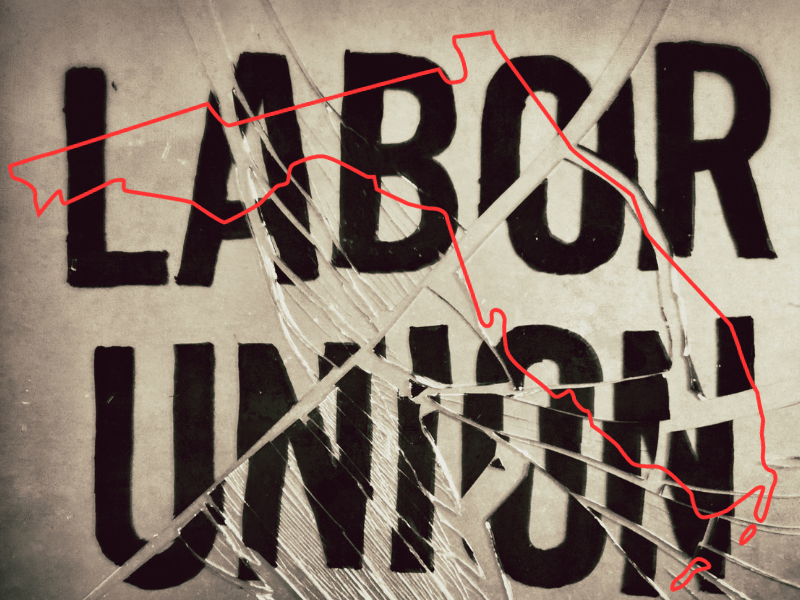A new law in the Sunshine State makes public employee unions competitive.
Since 2018, courtesy of the Supreme Court’s Janus ruling, no public employee has to pay a penny to a union as a condition of employment, and workers have been indeed leaving. The Mackinac Foundation’s Jarrett Skorup recently noted, “Public records requests to government entities show that more than 20% of workers nationwide have withdrawn from union membership. In short, around 1 million people who work under collective bargaining agreements have exercised their First Amendment right to decline union membership.”
All good and well, but there is still much work to do. Even if an employee decides to forgo union membership, he or she – willingly or not – is still part of the collective bargaining unit. So, when contract time rolls around, the worker must accept the terms of the union agreement.
Why should an unwilling worker be dragged into a collective bargaining agreement?Those who don’t want to join a union should not be forced to be a part of the collective bargaining unit at all. They should be free to negotiate for themselves, and not be required to have anything to do with a union. The idea of a “members only” union is fair to both sides, but it is invariably reviled by monopoly-possessed union honchos.
Also, if a worker wants to be in a union, but doesn’t like the one now in place, can they start a competing union?
No, because the unions disdain any form of competition. As Mike Antonucci explains, “The very first thing any new union wants is exclusivity,” whereby “no other unions are allowed to negotiate on behalf of people in the bargaining unit. Unit members cannot hire their own agent, nor can they represent themselves.”
But now, Florida has taken a step in the right direction. Under the state’s SB 256, which went into effect July 1, if public employee union locals don’t get dues from at least 60% of their members, they risk decertification. While not a perfect bill – it doesn’t touch the exclusivity diktat, e.g., – it at least makes for a more competitive arrangement.
In Miami, the hegemony of the United Teachers of Dade, an affiliate of Randi Weingarten’s American Federation of Teachers, is in trouble. As of Nov.10, the number of union dues payers in Miami-Dade public schools was at 58.4%, and if it can’t hit the 60% threshold by Dec. 15, a board appointed by Gov. Ron DeSantis will step in and begin the process of decertifying the union.
The union and its acolytes are in an absolute snit over the turn of events. Karla Hernandez-Mats, president of the United Teachers of Dade, called SB 256 the “most egregious, most anti-union bill ever proffered.”





